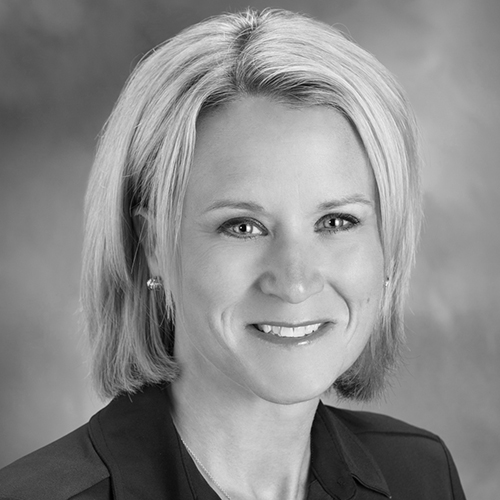When Darrell Riekena joined Republic National Distributing Company (RNDC) as chief information officer, he inherited an expansive landscape of technology architectures and applications. “Due to the company’s complex environment of growing up through mergers and acquisitions combined with a focus to serve customers in many markets, RNDC had a lot of different technological things going on,” he says of his challenges at the nation’s second-largest wholesale wine and spirits distributor.

“It was a tall order just to keep up with the status quo because we had so many technologies running on different platforms and systems,” he says.
Riekena, however, isn’t about status quo; he’s about creating breakthrough solutions. The Wisconsin native started out as a computer programmer and climbed his way up the ranks of IT departments at major retailers. His career has focused on finding new approaches for companies going through major transformations, from an organizational standpoint and a technology perspective.
He had previously worked with companies such as JCPenney, Limited Brands, Kroger, Target, and National DCP to implement enterprise solutions, deliver information and analytics platforms, and provide simplified, efficient operating models offered by IT shared-services models. In addition, he had worked on merging multiple companies, incubating new brands and concepts, relocating a corporate office, and building and developing a new team.
Over the past year, Riekena’s work at RNDC has been focused on simplifying a very complex IT model. Oracle’s suite of solutions has been essential for that process. “Instead of having to go to multiple technology providers for answers, Oracle is a common platform of solutions that meets the needs of different functional elements of your business,” he says.
In addition to Oracle, Deloitte was invaluable in the transformation. “Deloitte has been a great partner based on its ability to introduce leading business and technology practices, its depth of implementation experience, and its commitment to support RNDC for the long term,” he says. “It’s been going well in rolling out these changes to RNDC’s various markets.”
Riekena leads an IT team of more than seventy-five people, in addition to overseeing numerous contractors and consultants. Unlike other corporations, RNDC does not have a true corporate office. Instead, the privately owned family business, which traces its roots to the era before Prohibition, has offices across twenty-two states and the District of Columbia. RNDC employs more than nine thousand associates. Riekena himself is based in Atlanta, one of RNDC’s Centers of Excellence. “It works out well having our associates close to several of the major markets we do business in,” he says.
RNDC values its role in the three-tier system of alcohol distribution established in the United States after the repeal of Prohibition. The three tiers are producers, distributors, and retailers, and the basic structure of the system is that alcoholic beverage producers may sell their products only to wholesale distributors who then may sell to retailers. Only retailers may sell to consumers.
“We’re a company built on strong relationships,” Riekena says. “Family is one of our core values, and this is evident in the way our associates conduct their business every day and how we value our customers.”
Among the RNDC family, 39 percent are millennials. “It’s a good thing,” Riekena says. “They come on board hungry for new technology and innovation. In fact, it’s expected. They’re asking, ‘How can I apply that to some aspect of our business?’ They’re constantly evaluating what we are doing and asking how we can do it better.”
The millennial workforce is also a generation that’s action-oriented. “This is a group that knows how to meet and get things done without having everyone on the team in the same room,” Riekena says. “They’re mobile and want to use collaboration tools such as web-conferencing or videos.”
However, Riekena says that his young workforce’s enthusiasm needs to be checked at times. They occasionally need to be reminded to take a step back, reexamine, and reassure themselves that they are on the right path.
“When you go about a change of this magnitude, it’s difficult. However, RNDC sees that, by going to an enterprise approach, we can perform better by choosing best practices of all of our markets. There is a desire to use a better technology platform as an enabler to continue evolving and to become more agile across the company.”
“We have to continually evaluate how much change RNDC can digest at any one time,” he says. “We have to ask how we are going to make that innovation or idea stick and remain consistent across our organization.”
Technology has become interwoven into professional and personal daily life. Simplification is one of Riekena’s mantras. He notes that for technology investments to generate value, they need to be accessible and usable and serve a purpose. The technology investments led by Riekena increase transparency of information at RNDC to improve personal and organizational performance while enhancing customer experiences.
Although he has served as RNDC’s IT chief for less than a year, Riekena has been impressed with the company’s adaptability and commitment to improvement.
“RNDC is open and willing to try change, and when you go about a change of this magnitude, it’s difficult,” he says. “However, RNDC sees that, by going to an enterprise approach, we can perform better by choosing best practices of all of our markets. There is a desire to use a better technology platform as an enabler to continue evolving and to become more agile across the company.”
While he and his team continue to adapt and fine-tune the Oracle platform, they are looking for technology solutions in other areas as well. For example, the team is working on how to better use real-time data, analytic functions, and automation in RNDC’s distribution centers to improve the efficiency in selecting and filling orders. They’re even looking at virtual reality training scenarios for employees.
“When you go about change of this magnitude, it’s difficult for everyone,” Riekena says. “But RNDC sees that by going to an enterprise approach, we can leverage the best practices of all of our markets and apply them to the entire organization. There is a willingness here to get to a better technology platform, to continue to evolve, and to become even more agile.”

